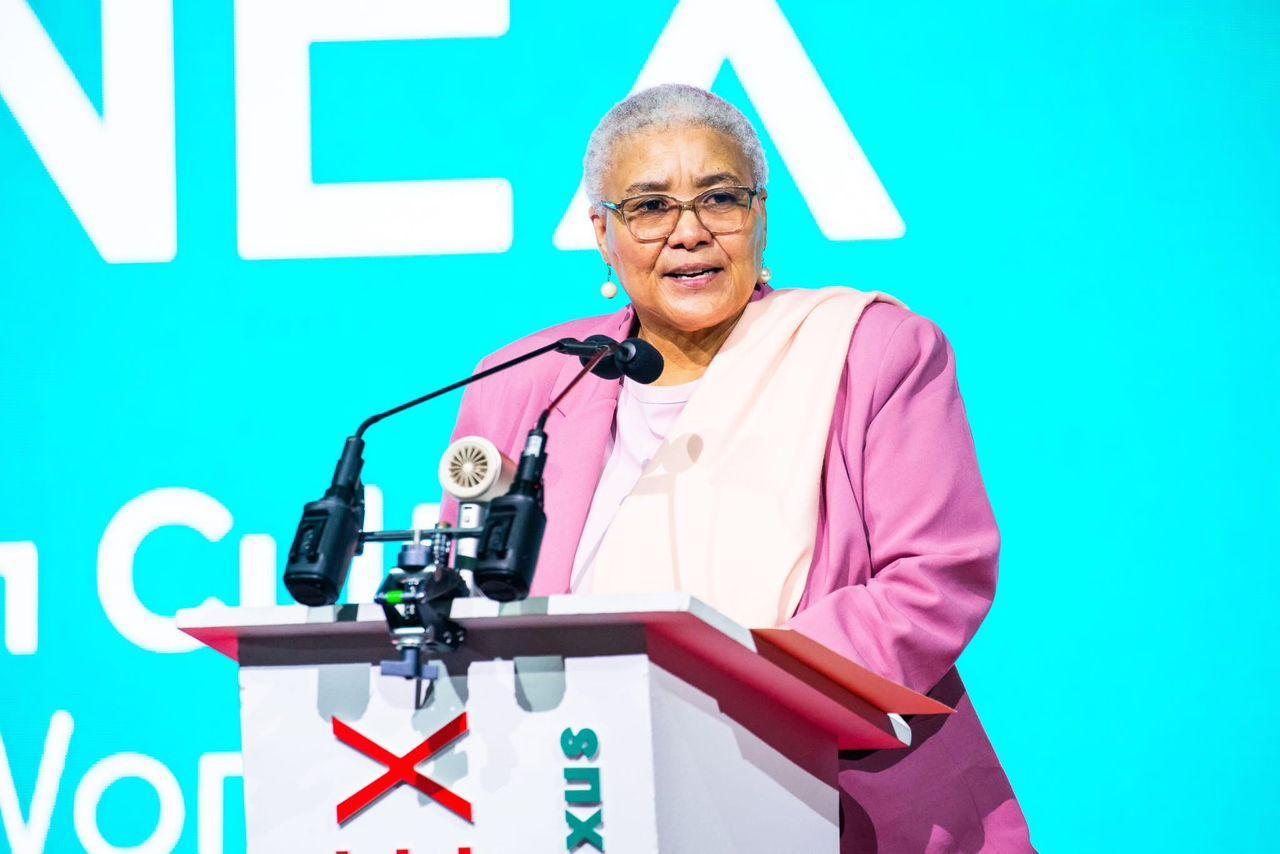Africa-Press – Namibia. Namibia is ready to work with the continent to ensure its natural resources are managed sustainably and regional value chains are strengthened.
This was said by Namibia’s Vice President Lucia Witbooi during the Presidential Roundtable discussion on the margins of the Intra-African Trade Fair in Algiers, Algeria, last week.
According to Witbooi, the African Continental Free Trade Area (AfCFTA) has become a vehicle for shared prosperity. She stressed that for Namibia, industrialisation through the AfCFTA is moving beyond being an exporter of raw materials.
“For Africa to truly harness the full potential of this agreement, we must go beyond trading in raw materials. The future we envision is one where our raw materials are processed in our factories, create African jobs, and generate African wealth,” she said.
The IATF2025 programme is designed for game-changing conversations, high-level negotiations, and cultural showcases, all aimed at accelerating Africa’s integration and economic transformation under the AfCFTA.
She said Namibia is proud to be among the early movers under the agreement.
On 30 June 2025, Namibia launched its first shipment within the AfCFTA framework, exporting 45 000 tonnes of salt to Nigeria and Cameroon. Witbooi described this not only as a milestone for Namibia but also a meaningful step towards realising the promise of continental trade.
“By creating the largest single market in the world, the AfCFTA has the potential to unlock Africa’s industrial capacity, particularly for small and medium enterprises, women-led businesses, and youth entrepreneurs,” she said.
The Vice President added that to fully benefit, Africa must continue addressing non-tariff barriers, harmonise standards, and ensure rules of origin encourage manufacturing and value addition on the continent. “Together, we can transform Africa into a globally competitive industrial hub that delivers inclusive growth and development for all its people,” she said.
Algeria reaffirmed its readiness to support Namibia as a strategic partner, expressing willingness to share its expertise through legal advisory support, capacity-building, and technical training, as well as exchanges of experts to strengthen cooperation in the energy sector.
Both parties agreed to deepen bilateral engagement, including forthcoming high-level visits to Algeria for in-depth discussions and site visits to strategic oil, gas, liquefied natural gas, and renewable energy facilities. At the same occasion, the secretary-general of the AfCFTA secretariat, Wamkele Mene, called on African leaders to accelerate implementation of the agreement, urging them to build resilience and safeguard the continent’s collective interests in light of global uncertainties and shifting trade patterns. “Intra-African trade rebounded strongly in 2024, reaching US$220.3 billion – a 12.4% increase from 2023 – according to Afreximbank’s African Trade Report 2025. This recovery underscores growing confidence in Africa’s integration model under the AfCFTA. The data shows a gradual shift in the continent’s trade composition,” Mene said.
He added that while primary commodities still dominate, there is notable growth in machinery, motor vehicles, food products, chemicals, and electronics.
“This shift signals our continent’s transition from raw commodity dependency towards industrial diversification – a shift that will only be sustained by stronger logistics and manufacturing value chains,” Mene added.
For More News And Analysis About Namibia Follow Africa-Press






